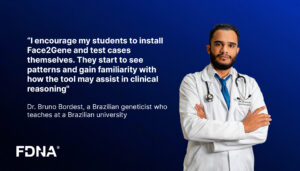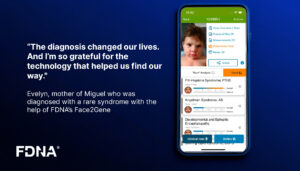May 4, 2018
“FDNA, in collaboration with The Focus Foundation, announces the successful recognition of the facial phenotype of 49, XXXXY (“49ers”) syndrome, a rare genetic disorder that occurs in 1 in 85,000-100,000 male births in all races, ethnic groups, and countries equally throughout the world. The ability to successfully identify the facial phenotype of boys with 49, XXXXY earlier in their development enables more precise and personalized treatments and leads to improved quality of life. Early diagnosis is the difference between being verbal or non-verbal, social behavior or autistic-like traits, and results in greater potential for independence and community participation.”
The article reveals FDNA’s notable achievements in genome analysis through its partnership with The Focus Foundation. By leveraging advanced AI and genomics, FDNA has identified crucial genetic markers linked to various rare diseases. This collaboration has enabled the precise mapping and understanding of genetic disorders, fostering early and accurate diagnoses. FDNA’s innovative approach to genome analysis not only accelerates the discovery of genetic anomalies but also enhances the potential for targeted therapies, demonstrating a significant leap forward in personalized medicine and patient care.


